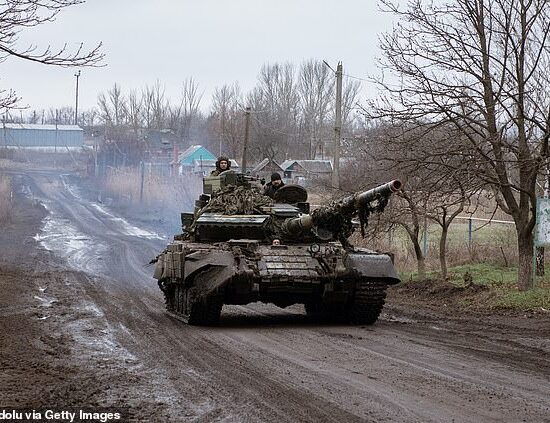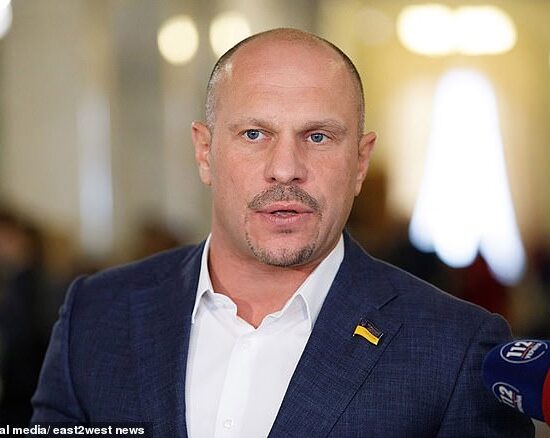
RUSSIA’s Foreign Minister Sergei Lavrov has hinted Russia might have lost one of its last allies after he indicated an uneasy relationship with former supporter China.
In recent days, China and India, once billed as friendly nations by the Kremlin, have heaped pressure on Vladimir Putin, following the president’s biggest escalation of the Ukraine war – including nuclear threats and nationwide mobilisation.
Lavrov, who was speaking at the UN General Assembly on Saturday, refused to answer a reporter’s question about whether China is pressuring the Kremlin to end the war soon.
Lavrov first argued about the journalist’s choice of words before slamming: “Tell your readers that I avoided the question.”
China’s Foreign Minister Wang Yi, who was also present at the 77th session of the UN General Assembly, called for a negotiated end to the war.
“China supports all efforts conducive to the peaceful resolution of the Ukraine crisis. The pressing priority is to facilitate talks for peace,” Wang told the Assembly, stressing that Russia and Ukraine should make concerted efforts to “keep the crisis from spilling over”.
This shift from China’s usual opaque statements represents an apparent defiance to long-time friend Putin – with whom China vowed an “unbreakable” bond at the start of the war.


India, which also has historic economic ties as well as a number of bilateral defence agreements with Moscow, seconded China.
This change of tone is a far cry from the start of the Ukrainian invasion, when the two nations loudly criticised Western sanctions against Russia, refused to enact those sanctions and continued to buy up Russian energy.
But Putin’s lifelines have appeared faulty in recent weeks – a development the White House has called “noteworthy”.
In the first high-level meeting with his allies during the Shanghai Cooperation Organisation (SCO) summit in Uzbekistan’s Samarkand, Putin was furious when China and India announced they were both uneasy about the invasion of Ukraine, according to sources quoted by The Times.
The strongman had been hoping for strong statements of support from his eastern allies, who, like Russia, have contentious relations with the West.
But China’s Xi Jinping said he had “questions and concerns” surrounding the war in Ukraine, while Indian Prime Minister Narendra Modi pressed Putin to end the war.
Caught on camera, Modi told Putin: “Today’s era is not an era of war, and I have spoken to you on the phone about this”.
Saturday’s comments from Beijing and New Delhi underline Putin’s growing isolation and raise questions about Russia’s ability to sustain its economy, which has so far been propped by its allies.
So far, Russia has also strongly relied on ally Turkey, which has been mediating between the West and Russia, but this relation is also showing signs of wear.
Following Putin’s announcement that Russia would carry out referendums in occupied Ukrainian territories, Turkey issued a stern reproof.
“Such illegitimate fait accomplis will not be recognised by the international community. On the contrary, they will complicate efforts to revitalise the diplomatic process and deepen instability,” Istanbul’s statement said.
“We renew our support to Ukraine’s territorial integrity, independence and sovereignty, which we have been emphasising since the illegal annexation of Crimea in 2014, and reiterate our readiness to extend all necessary support to resolve the ongoing war … through peaceful negotiations.”
Turkish president, Recep Tayyip Erdoğan told PBS he felt he had been blindsided by Putin’s latest announcement, saying he believed that his Russian counterpart was ready to make concessions.
With China refusing to send military equipment, Russia can now only rely on economically ostracised North Korea and ostracised Iran.
Defense supplier Iran, which also shares a deep disregard for the West in particular the U.S., has expanded its military cooperation with Russia since the invasion of Ukraine.
This stronger dealings between the two isolated nations have become clear in recent weeks after several Iranian-designed Shahed-136s – so-called “suicide drones” – were shot down by Ukrainian forces.
But, these political, diplomatic and economic setbacks come as Putin also faces blows on the battlefield and sweeping protests at home.
Anti-mobilisation protests broke out across the country after Putin drafted 300,000 reservists into his bloody war in Ukraine on Wednesday.
Hundreds of demonstrators were arrested as thousands are trying to flee the country.


Huge queues have built at the borders with Finland, Georgia and Mongolia while men are rushing to get married to avoid getting conscripted.
Flights have also been disrupted, with fares for journeys on Russia’s national airline Aeroflot going for up to £10,000.


















